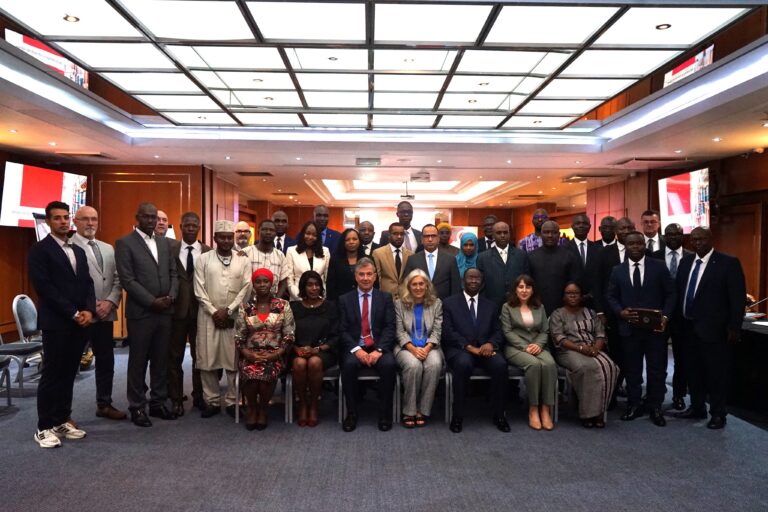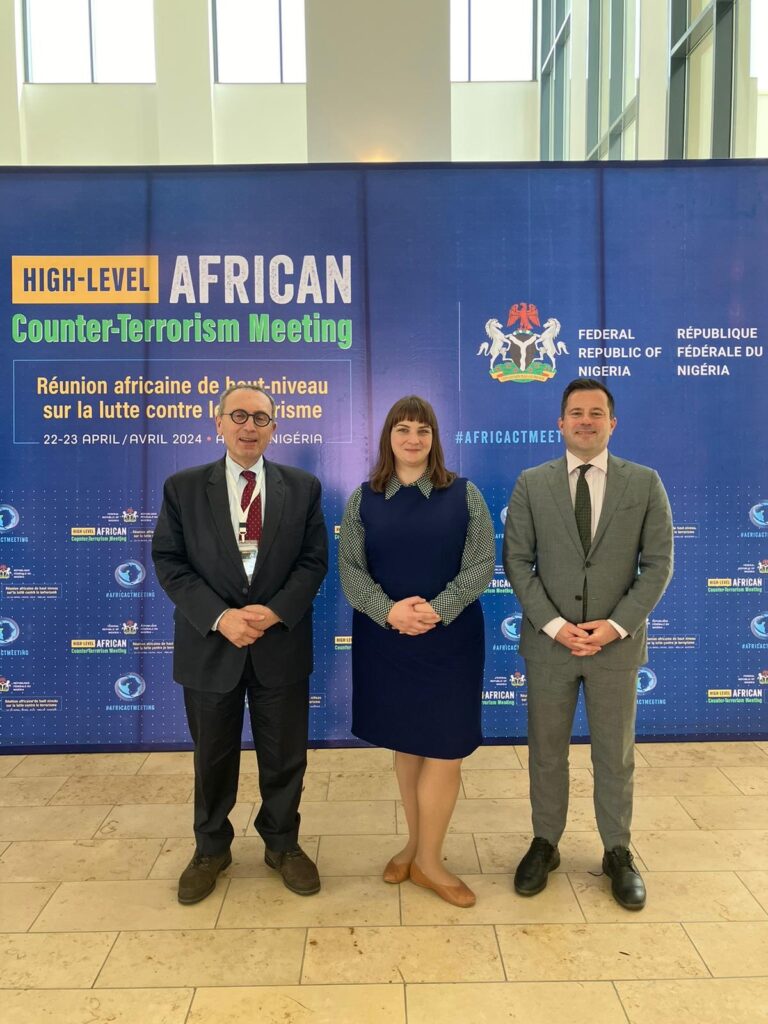Enhancing Regional Capacities to Counter and Prevent Terrorism
Abuja, 23 April (10:00-13:00)
Dear National Security Adviser Mallam Nuhu Ribadu,
Dear Under-Secretary-General Voronkov,
Excellencies and colleagues,
It is with great privilege that I address this conference and thank Nigeria and UNOCT for the invitation to the International Institute for Justice and the Rule of Law that I am representing.
As one of the three GCTF-Inspired Institutions, the IIJ is tasked with providing rule of law-based training to a diverse array of justice sector stakeholders, including lawmakers, law enforcement officials, prosecutors, judges, corrections officers, and others.
Our mission extends to strengthening criminal justice systems and fostering regional networks among judicial, law enforcement, and other criminal justice practitioners. Our efforts align closely with the best practices outlined by the GCTF and the relevant Security Council resolutions. We operate across Africa, the MENA region, and Southeast Asia, frequently collaborating with UN partners and with so many of the partners from Africa represented here today.
As a GCTF-Inspired Institution committed to upholding the rule of law in countering terrorism and transnational crime, the IIJ trained more than 900 practitioners and delivered over 3,000 individual training days in 2023 alone. Through 28 tailored training and capacity-building activities, we focused on addressing the unique challenges faced by our core regions in Africa, the Middle East, and Southeast Asia.
The practitioners from the African continent represented 30% of our participants in the 2023 activities, with a gender representation of over 75% men and 25% of women. Above 80% of them reported that the activities enhanced their knowledge of a particular CT technique, facilitated their work and helped them building relevant professional contacts. While 38% of them reported having changed their work practices as a result of their participation in the IIJ activities.
When working in the region the IIJ is also working closely with regional bodies. Currently we are strengthening our cooperation with GIABA, a part of ECOWAS, on workshops and training sessions focusing on Counterterrorism Financing and addressing Designated Non-Financial Businesses and Professions (DNFBPs) in the same context. The IIJ has also worked with IGAD, on a Workshop for Kenyan and Somali Stakeholders on Building Strong Procedural Mechanisms for Mutual Legal Assistance as well as Great Lakes Judicial Cooperation Network on judicial cooperation.
In addition to our programmatic endeavours, we recognize the invaluable contribution of our alumni network, comprising over 9,000 criminal justice practitioners. As we celebrate our 10th anniversary in 2024, we plan to further enhance alumni engagement and strengthen connections within our global network.
The IIJ’s work encompasses both shorter thematic programmes and longer courses, addressing a wide range of topics, including foreign terrorist fighters, terrorism financing, and politically motivated violent extremism.
We are also actively supporting the work of Working Group as an implementing partner. The Working Group’s mandate focuses on promoting the recommendations of GCTF framework documents advocating for the respect for the rule of law in criminal justice matters, in particular in the field of terrorism investigations and prosecutions.
Next month from 22-23 May here in Abuja, the IIJ is organizing with the co-chairs of the working group, Nigeria and Italy, an Expert Meeting on Good Practices for the Protection of Witnesses and Criminal Justice Officials and the CJ-ROL Working Group Plenary Meeting. The expert meeting will tackle the challenges posed by witness and criminal justice officials protection in the context of terrorism prosecutions and adjudications. As a result of the discussions at the expert meeting, we will develop a toolkit to operationalize GCTF’s good practices on witness and criminal justice officials’ safety and security.
As an implementing partner, we also focus on advancing the key recommendations for the GCTF’s framework documents related to criminal justice and rule of law. We can cite several examples including the Global the Survey on Fair Trial Rights in Terrorism Cases led by the IIJ under the auspices of the EU-funded CT PHARE project that is designed to raise the awareness of Human Rights in the context of counter-terrorism responses.


